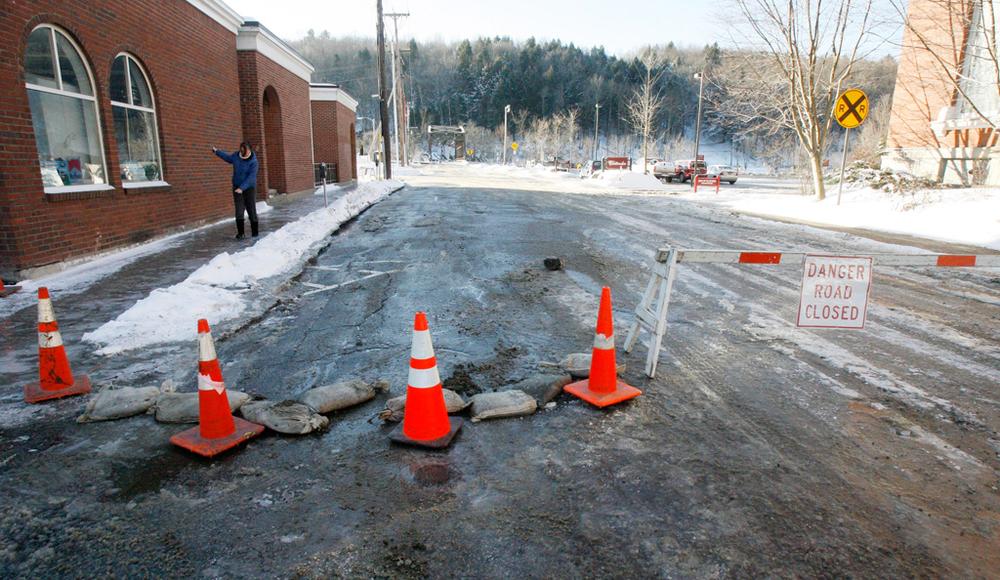Advertisement
Icy Sidewalks Ruling Could Be A Slippery Slope

There could be an increase in slip-and-fall lawsuits in Massachusetts, come winter.
The state Supreme Judicial Court has reversed a centuries-old understanding about when property owners can be held liable for someone getting hurt on ice or snow.
Sure, temperatures are in the 80s lately and nobody is thinking about shoveling snow. But this ruling will matter when, in three or four months, the white stuff falls again on New England. And some people won't shovel enough, or at all.
That puts people like Bostonian Chase Wickersham in a quiet rage.
"Storms last for two weeks here... They shovel their sidewalk — what, once? — and then they leave it for the rest of the 13 days," Wickersham said. "And it's just ice. I mean you can see it, walking down the street sometimes."
Yes, it's infuriating. Monday's ruling could address Wickersham's complaint: that, even if they do shovel, people all-too-often fail to maintain clean walkways.
The parking lot had been plowed, but some of the runoff refroze. Papadopoulos slipped. Papadopoulos sued.
Way back in 1883, a woman sued her landlord after slipping on the icy steps of her apartment building. The court ruled the landlord had made a reasonable effort to clear the steps and could not be liable for the "natural accumulation" of ice that followed.
That decision opened a tiny tort loophole known as "the Massachusetts rule."
Fast forward to December 2002. Emanuel Papadopoulos parks his car at a Target store in Danvers. The parking lot had been plowed. But some of the runoff refroze.
Papadopoulos slipped. Papadopoulos sued.
Target invoked "the Massachusetts rule" and won the case. But on Monday, the state's highest court stepped in — overturning that rule and siding with Papadopoulos.
In the ruling, Justice Ralph Gants wrote,
We do not accept this rationale where a property owner knows or has reason to know that a banana peel has been left on a floor by a careless customer; we have long held that the property owner has a duty to keep the property reasonably safe ...
In other words, it doesn't matter how the ice got there, it's the property owner's responsibility to clear it in a reasonable amount of time.
But attorney David Frank of Massachusetts Lawyers Weekly points out the court did not define "reasonable amount of time."
The court’s point is this: No more excuses for icy sidewalks.
"If you have a situation where you let snow sit there for weeks, as opposed to hours that's going to be an easier case," Frank said. "But when you get down to whether a day is enough or two days is enough, that'll have to be worked out as we move through."
And a new gray area appears. But the court's point is this: No more excuses for icy sidewalks. Massachusetts finally joins every other Supreme Court in New England in seeing that way. Take this Rhode Island Supreme Court ruling nearly 40 years ago:
A landlord, armed with an ample supply of salt, sand, scrapers, shovels and even perhaps a snow blower, can acquit himself quite admirably as he takes to the common passageways to do battle with the fallen snow.
Related Links:
This program aired on July 27, 2010.